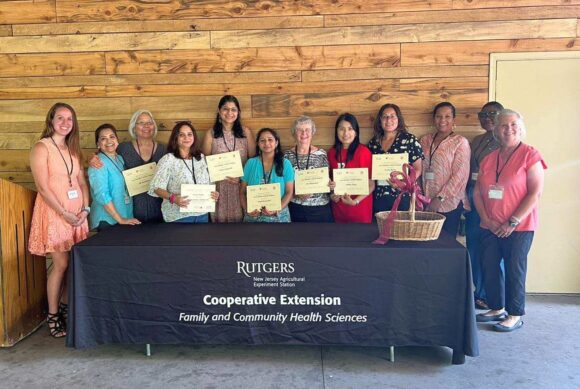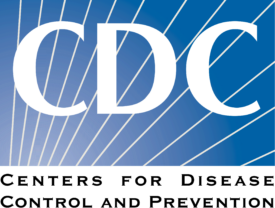
NJEP first cohort with their graduation certificates.
November is Diabetes Awareness Month
 In September New Jersey Empower to Prevent (NJEP), the Department of Family and Community Health Sciences (FCHS) local version of the Centers for Disease Control and Prevention (CDC) National Diabetes Prevention Program (NDPP) received full recognition status. Full recognition is the highest level of recognition that can be achieved by a CDC-recognized organization. It means that all Diabetes Prevention Recognition Program (DPRP) standards requirements have been met.
In September New Jersey Empower to Prevent (NJEP), the Department of Family and Community Health Sciences (FCHS) local version of the Centers for Disease Control and Prevention (CDC) National Diabetes Prevention Program (NDPP) received full recognition status. Full recognition is the highest level of recognition that can be achieved by a CDC-recognized organization. It means that all Diabetes Prevention Recognition Program (DPRP) standards requirements have been met.
The CDC’s NDPP is a year-long, evidence-based lifestyle change program designed to lower the risk of developing type 2 diabetes in high-risk populations. The research behind the NDPP has shown that modest weight loss of 5-7% body weight can reduce the risk for diabetes by up to 58% in high-risk adults, and up to 71% in older adults.
According to the most recent data from CDC, diabetes affects more than 37 million adults in the U.S. Another 96 million—more than a third of the adult population—has prediabetes, an early stage of abnormal glucose regulation. Risk factors for diabetes include being overweight and obesity, inactivity, increasing age, smoking, family history, and race/ethnicity.
In April 2021, FCHS launched the first cohort of NJEP using a distance-learning model. Participants began weekly one-hour classes for 16 weeks using the Zoom online video platform. The curriculum included topics on healthy eating, physical activity, stress management and motivation for behavior change. After the first four months, sessions continued on a bi-weekly and monthly basis, for a total of 12 months. Group support and individual interaction with the FCHS educators, who are trained CDC lifestyle coaches, encourages participant engagement in the program, which has been linked to successful outcomes.
After one year, all 15 enrolled participants had completed the program. Outcomes included:
- 8 people lost at least 5% of their starting weight
- 7 people lost at least 4% of their starting weight and achieved a minimum of 150 minutes of physical activity each week
- 4 people reduced their HbA1c (a measure of average blood glucose) by at least 0.2%
- 1 person discontinued a blood glucose lowering medication
- 4 people reduced their Body Mass Index (BMI) to within a healthy range
In July, group accomplishments were celebrated at a program completion/graduation ceremony held at the Rutgers Gardens, attended by representatives from the New Jersey Department of Health, Division of Diabetes Prevention and Control, who provided funding for the project.
Two additional NJEP cohorts are now underway, enrolling 30 participants from across New Jersey, who are diverse in age, gender, and race/ethnicity. For more information please contact Shailja Mathur at mathur@njaes.rutgers.edu or Alexandra Grenci at grenci@njaes.rutgers.edu.

